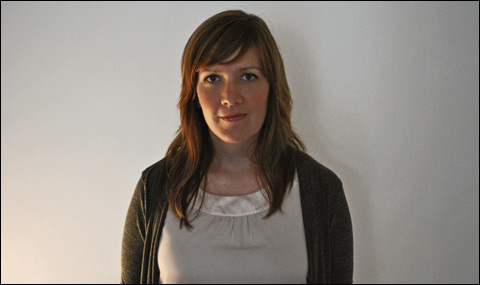
UNDERGROUND WOMAN: Lindsay Hunter makes drunk teenagers dry-humping in Cheeto dust compelling literary fare. |
It seems everyone is worrying about Americans and their reading habits. According to people who are paid to think about these things, the internet, mobile phones, and internet-capable mobile phones are all conspiring to destroy our comprehension skills. In a few generations, the avid reader will replace the steam punk as the most visible, most obnoxious advocate of arcane technology.
Rumor has it that sales of e-books (not really reading, we're told) outstripped hardcover sales this year. The Secret and Nicholas Sparks dominate the bestseller list. Somewhere, a child weeps for Nicholas Sparks's impending novelization of The Secret. Somewhere, a child weeps because she knows that her descendants will struggle to understand the nutritional information on the side of a cereal box. Somewhere, a child weeps because Harold Bloom said Harry Potter was stupid and corrosive. Joyce churns in a forgotten grave.
Just as Nero played the violin while Rome burned, small presses publish delightful books while Literature topples around us. As a rule, these books are hard to find. None of them is likely to be featured in the Sunday Times; some aren't even sold through Amazon. Unless you attended a graduate program in creative writing or you work for an independent bookstore, these books are likely to slip beneath your radar, distracted as you are by your iPhone's pretty, blinking lights.
Fear not! I have trolled the depths of the demon internet to retrieve good tidings from the world of independent books.
Lindsay Hunter makes drunk teenagers dry-humping in Cheeto dust compelling literary fare. Daddy's (Featherproof Books, $14.95), her debut collection of short shorts, follows a trove of confused young people through frightening parking lots and crappy apartments. Those who miss explicit sex in contemporary literature, take heart: Hunter writes about it, and frequently.
"The Fence" concerns a woman who masturbates compulsively with an electric dog collar; "Sex Armageddon" offers a horny homeless couple, M&M's, and a Bic lighter. Hunter's approach to sex channels both Mary Gaitskill and John Waters: it's desperate, depraved, and thrillingly transgressive.
I'd be remiss not to mention Daddy's sexy packaging. The book resembles a tackle box: bound at the top and illustrated throughout with corroded-looking fishing-themed photographs. Neat!
Experimental-fiction enthusiasts drooled in anticipation of Amelia Gray's Museum of the Weird (FC2, $15.50), not least because she won an innovative-fiction prize from her incredibly experimental publisher (whose destructive powers Jonathan Franzen, in a New Yorker piece, compared to the Unabomber's), and because she contributes to HTML Giant, a lit site so cool I just lost points for mentioning it.
Museum of the Weird lives up to its name: it's super freaking weird. It's so weird, its blurbs don't even make sense. Leave your notions of formal cohesion behind — Gray's stories are best apprehended as tone poems. Museum offers people married to inanimate objects, inter-species drinking buddies, and cannibalism.
Lest you think small-press books are all sexy and weird, consider Jessica Francis Kane. In The Report (Graywolf Press, $15), Kane out-Franzens Franzen in her ability to create a compelling, traditional narrative.
The Report is an affecting novel about the Blitz. I tend to hate historical fiction — even David Mitchell's The Thousand Autumns of Jacob de Zoet left me cold. But Kane's deft characterizations, ambient acuity, and ruthless depiction of human collateral blew me away.